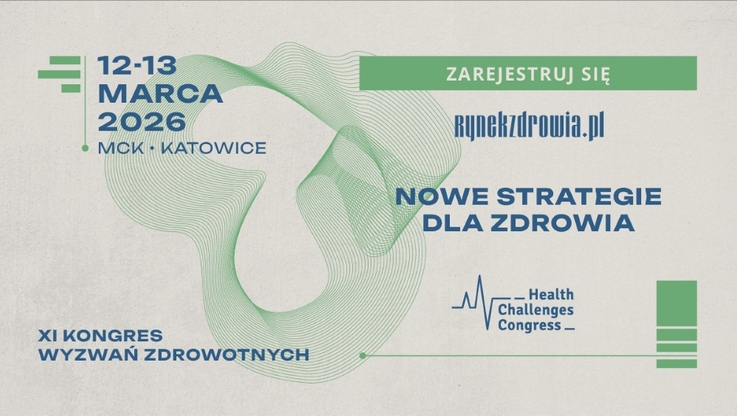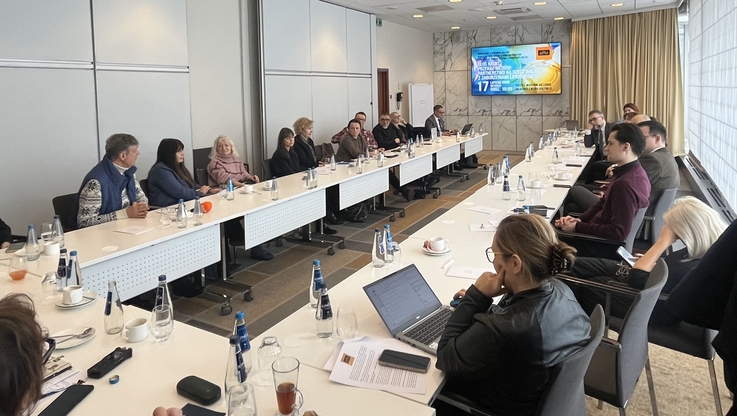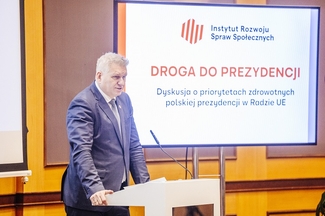Pobierz materiał i Publikuj za darmo
ESPON is an EU programme that provides national and regional policies and practitioners of the European community with comparable data and expertise on development trends and the impact of the implementation of public policies on European regions and areas. The study “Collaborating to create better digital healthcare” was published in July this year.
The authors highlight that while people, goods and pathogens cross borders seamlessly; medical data still remains not only in national systems, but also in the systems of individual healthcare providers within a single country. They add that the necessity for an interoperable eHealth system has been recognised before, but the COVID-19 pandemic has demonstrated the need for a change in thinking about eHealth and increased efforts to develop it as soon as possible.
According to the authors of the publication, the development of a patient-rights-oriented digital health system is uneven across Europe and this is a major obstacle to accessing health services, regardless of location. Already in 2011, a directive (2011/24/EU) entered into force, which introduced rules for healthcare for EU citizens based, among other things, on the development of digital solutions in the healthcare sector. However, the difficulties in implementing an EU-wide eHealth system were underestimated at the time. Consequently, there is still much to do in the area of data sharing.
“The major challenge is the level of complexity in healthcare - the systems of organisation, governance, clinical practice, information sharing, including sensitive data, research and development, education and lifelong learning are most often independent (...). When taking into consideration national borders, the level of complexity increases considerably,” we read in the study.
In 2018, the European Commission established three targets in this area:
• allowing EU citizens to access their medical data wherever they are,
• introducing the exchange of medical data for the purposes of rapid diagnosis, therapy and research,
• using digital eHealth systems to strengthen the role of the patient in healthcare systems and create patient-centred care.
According to ESPON experts, these goals can only be achieved if interoperability is ensured between the different healthcare structures and information systems in the healthcare sector in Europe.
The first data exchange systems of this kind, such as the Connecting Europe Facility (CEF), have already been established, however, according to the authors of the study, they are nowhere near perfect due to the diversity of healthcare systems and the different levels of digital development in the various countries and regions of Europe.
The authors of the publication recall that e-prescription and electronic access to basic medical records is already operating in Europe. As a result, in the case of health problems during a trip, a local doctor will know, for example, what the patient is allergic to, and the patient can have the e-prescription filled in a pharmacy outside the country. Currently, however, the system is completely operational in only seven Member States, while several others have launched pilot programmes.
According to the authors of the study, a number of conditions need to be met in order to further develop and overcome the current difficulties in creating a European eHealth system. In their opinion, it is necessary to:
• Appoint leaders to coordinate and monitor digitisation processes not within a single system, but multiple systems, including across national borders.
• Contribute politically and financially.
• Experts, politicians and stakeholders in the healthcare sector need to work together with their partners within and beyond their national borders.
• Support the development of legislation to protect sensitive data and the security of the eHealth system.
• Promote the compatibility and interoperability of information systems.
• Establishing a patient-centred system and good cooperation with direct healthcare providers should be an overarching goal in all activities.
ESPON experts suggest that the availability and exchange of medical data will not only allow the exercising of the patient's right to receive adequate healthcare in the place where he or she is currently staying, but will also support the development of new therapies. They will also allow an adequate and rapid response to global threats such as the recent pandemic.
Nevertheless, the experts state that there must be sufficient protection of sensitive data and security requirements. The patient is to have the right to choose the entity to which he or she will provide consent to both the processing of his or her data and to specify their scope.
Developing such a compatible, interoperable eHealth system requires both political will and adequate financial resources. It is mentioned in the publication that funds will soon be launched from EU programmes such as EU4Health, Digital Europe, Horizon Europe, Recovery and Resilience Facility, European Regional Development Fund, European Social Fund Plus and InvestEU.
Source: PAP MediaRoom
Pobierz materiał i Publikuj za darmo
bezpośredni link do materiału
| Data publikacji | 31.08.2021, 08:00 |
| Źródło informacji | Source: PAP MediaRoom |
| Zastrzeżenie | Za materiał opublikowany w serwisie PAP MediaRoom odpowiedzialność ponosi – z zastrzeżeniem postanowień art. 42 ust. 2 ustawy prawo prasowe – jego nadawca, wskazany każdorazowo jako „źródło informacji”. Informacje podpisane źródłem „PAP MediaRoom” są opracowywane przez dziennikarzy PAP we współpracy z firmami lub instytucjami – w ramach umów na obsługę medialną. Wszystkie materiały opublikowane w serwisie PAP MediaRoom mogą być bezpłatnie wykorzystywane przez media. |










